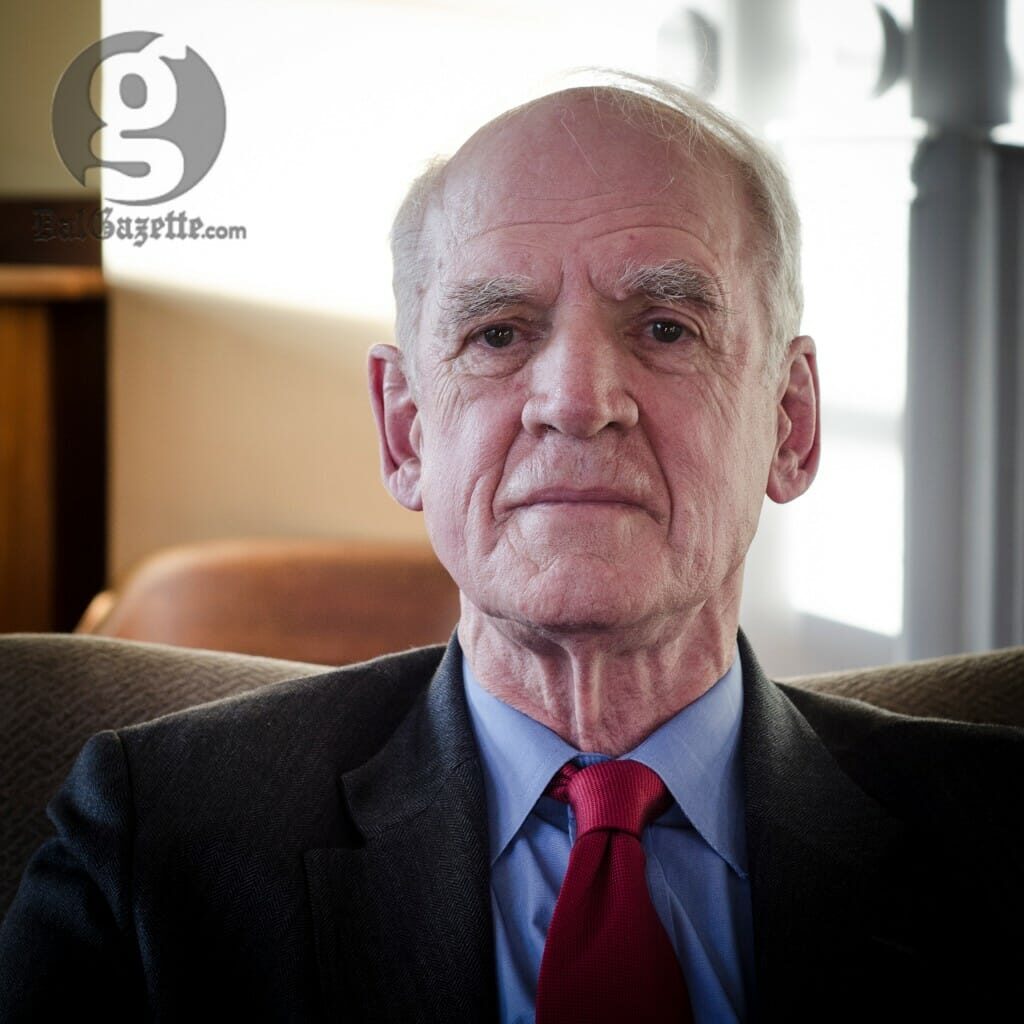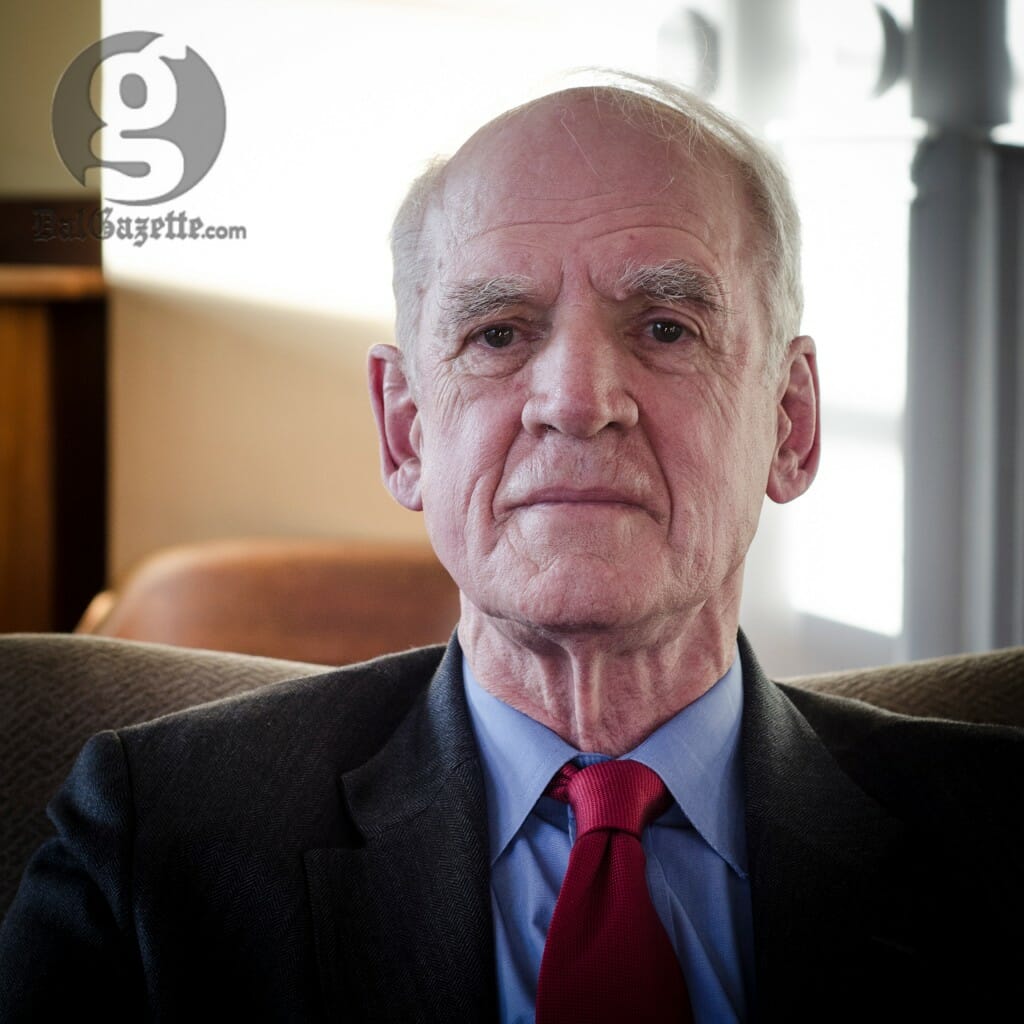

Charles Taylor was the 2007 recipient of the Templeton prize, awarded for
“affirming life’s spiritual dimension.” (Photo by Calum Agnew)
On Nov. 6, Charles Taylor gave the second annual Fountain Memorial Lecture at the University of King’s College. Charles Taylor is arguably Canada’s most prominent philosopher. He is currently professor emeritus of philosophy at McGill University.
Taylor sat down with the Gazette to talk about student issues, politics, and multiculturalism in Canada. This is a small excerpt from that interview. The full text and audio of the interview will be made available on the Gazette website.
The Quebec Student Movement and the Election
Dal Gazette: Since the dust has settled on the Quebec student protests and the elections that followed, I was wondering if you could give your thoughts on how those events did or did not lead up to a sovereigntist party being elected.
Charles Taylor: I think they helped the sovereigntist party [Parti Quebecois] because they were the one that said clearly, ‘We’re going to rescind the rise’—and so they got a certain amount of support from students; a certain number of students that don’t always vote turned out to vote. But, it didn’t have the effect that one thought it might have, because the sovereigntist party is now passing through a rather narrow phase, narrow culturally.
There’s two ways of conceiving of Quebec nationalism. One is very fear-filled: ‘We’re menaced by this, by that.’ The other is a more confident one, and they’ve fallen back into the fear stance. So they have a program that is forbidding everything in sight: can’t go to CEGEP, can’t get a right to operate as a company if you have more than ten people if you don’t go through the whole Francization process that would kill most small companies, because, just the bookkeeping is enough too etc. etc. etc. and then the charte de la laïcité and so on.
I think that a lot of Quebecers said, ‘Whoaa, I’m not gonna go there.’ If they hadn’t had these kind of very inward-turned stances I think they would have gotten a majority, riding on that particular push from students.
DG: What were your thoughts on the student protests as they were unfolding?
CT: Well, It was great in some ways but not very successful in other ways. I mean, what’s great is that it was our version of the kind of Occupy movements or the indignados movements in Spain. That kind of movement, which, by their very nature, very often do not have a very clear program: Just you know, ‘this is terrible.’ Right, it is. There’s too much inequality, etc.
And in this case they have more of program than in the other cases, right? But, that’s one of the problems. You need more than just a punctual concrete program: you need some bigger changes to make sense of this particular change. Rescinding the fee raise puts us in a situation where the universities are underfunded; the government has no program to fund them better. It probably doesn’t have the means to fund them better.
What was really needed is: ‘Let’s rethink our whole system of programs, health, education and so on, to see what changes can be made that will make it possible to have a better one.’
DG: Do you think the students would be in a position to drive that?
CT: Well, they weren’t in a position to drive it, but you could have imagined another, more imaginative government. I’m talking about the Liberals now, [Jean] Charest, saying, ‘Ok, you guys want to freeze the fees but now we’ve got to think about this in the whole context. Let’s see if we can find a good solution to this.’
Then the students would have turned out to have been the trigger for starting this whole process.
But instead, because that government didn’t do anything, and because the Parti Québécois offered just to roll it back, we’ve rolled it back. But the deep underlying problems which led to the fee rise in the first place? Totally unaddressed; totally unaddressed.
And they’re not really willing to address it, the Parti Quebecois.
DG: Do you think people supported the Parti Québécois who would otherwise have been unwilling to support a sovereigntist party? Who just wanted to get rid of the Liberals, for this one thing?
CT: Yes, except that the line between people who are sovereigntist and non-sovereigntist is very fuzzy.
There are probably people who have some sympathies, but they wouldn’t vote for a referendum now. There’s that kind of person—not people who really hate sovereignty, no—but people in that kind of zone went to vote for the Parti Québécois because of this: young people.
This excerpt has been edited for length and clarity.






